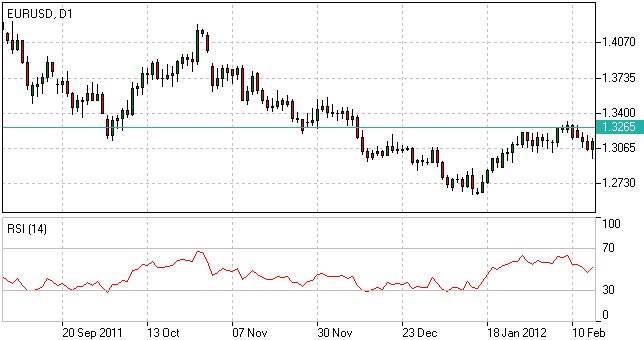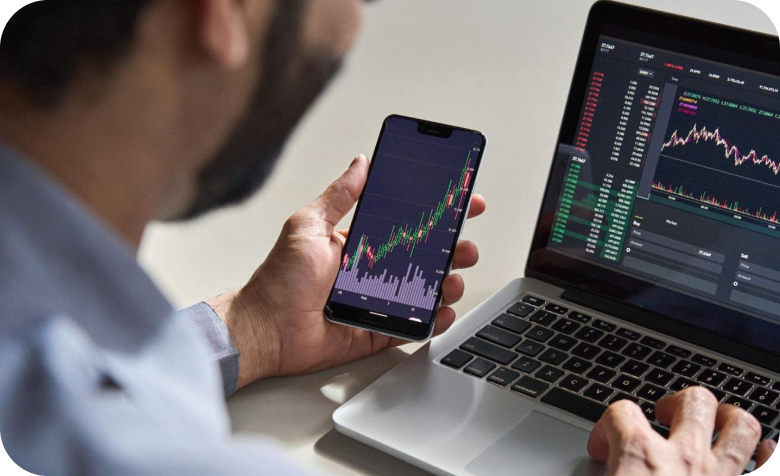- Education
- Forex Technical Analysis
- Technical Indicators
- Oscillators
- Relative Strength Index
Relative Strength Index - RSI Trading Strategy
What is Relative Strength Index
How to use Relative Strength Index in trading platform
How to Use Relative Strength Index
The Relative Strength Index allows to identify possible overbought and oversold areas, but should be considered within trend analysis:
- Generally if the RSI indicator climbs above 70, the asset may be overbought;
- If the RSI indicator drops below 30, the asset may be oversold.
Leaving extreme areas the indicator may suggest possible corrections or even trend changes:
- Crossing the overbought boundary from above, the RSI signals a possible sell opportunity;
- Crossing the oversold boundary from below, the RSI signals a possible buy opportunity.
Convergence/divergence patterns may indicate possible trend weakness:
- If the price climbs to a new high, but the indicator does not, that may be a sign of the uptrend weakness;
- If the price falls to a new low, but the indicator does not, that may be a sign of the downtrend weakness.

Relative Strength Index (RSI) Indicator
RSI Trading Strategy
RSI trading strategy aims to generate buy and sell signals by the horizontal lines that appear on the chart at the 70 and 30 values. As we have already mentioned above, a move under 30 indicates an oversold condition and a move above 70 signals an overbought condition.
Thus, if a trader is looking for a buying opportunity, he watches the indicator dip under 30. A crossing back above 30 is considered by many traders as a confirmation that the trend has turned up. Conversely, if a trader seeks for a selling opportunity, he watches the indicator cross above the 70 line.
Relative Strength Index Formula (RSI Calculation)
To calculate the RSI, it is necessary to determine the value of the relative strength (RS) which, according to the advice of the author of the index is calculated for a 14-day period.
RSI = 100 – 100/(1 + RS)
RS (14) = Σ(Upward movements)/Σ(|Downward movements|)
Forex Indicators FAQ
What is a Forex Indicator?
Forex technical analysis indicators are regularly used by traders to predict price movements in the Foreign Exchange market and thus increase the likelihood of making money in the Forex market. Forex indicators actually take into account the price and volume of a particular trading instrument for further market forecasting.
What are the Best Technical Indicators?
Technical analysis, which is often included in various trading strategies, cannot be considered separately from technical indicators. Some indicators are rarely used, while others are almost irreplaceable for many traders. We highlighted 5 the most popular technical analysis indicators: Moving average (MA), Exponential moving average (EMA), Stochastic oscillator, Bollinger bands, Moving average convergence divergence (MACD).
How to Use Technical Indicators?
Trading strategies usually require multiple technical analysis indicators to increase forecast accuracy. Lagging technical indicators show past trends, while leading indicators predict upcoming moves. When selecting trading indicators, also consider different types of charting tools, such as volume, momentum, volatility and trend indicators.
Do Indicators Work in Forex?
There are 2 types of indicators: lagging and leading. Lagging indicators base on past movements and market reversals, and are more effective when markets are trending strongly. Leading indicators try to predict the price moves and reversals in the future, they are used commonly in range trading, and since they produce many false signals, they are not suitable for trend trading.

Not sure about your Forex skills level?
Take a Test and We Will Help You With The Rest


